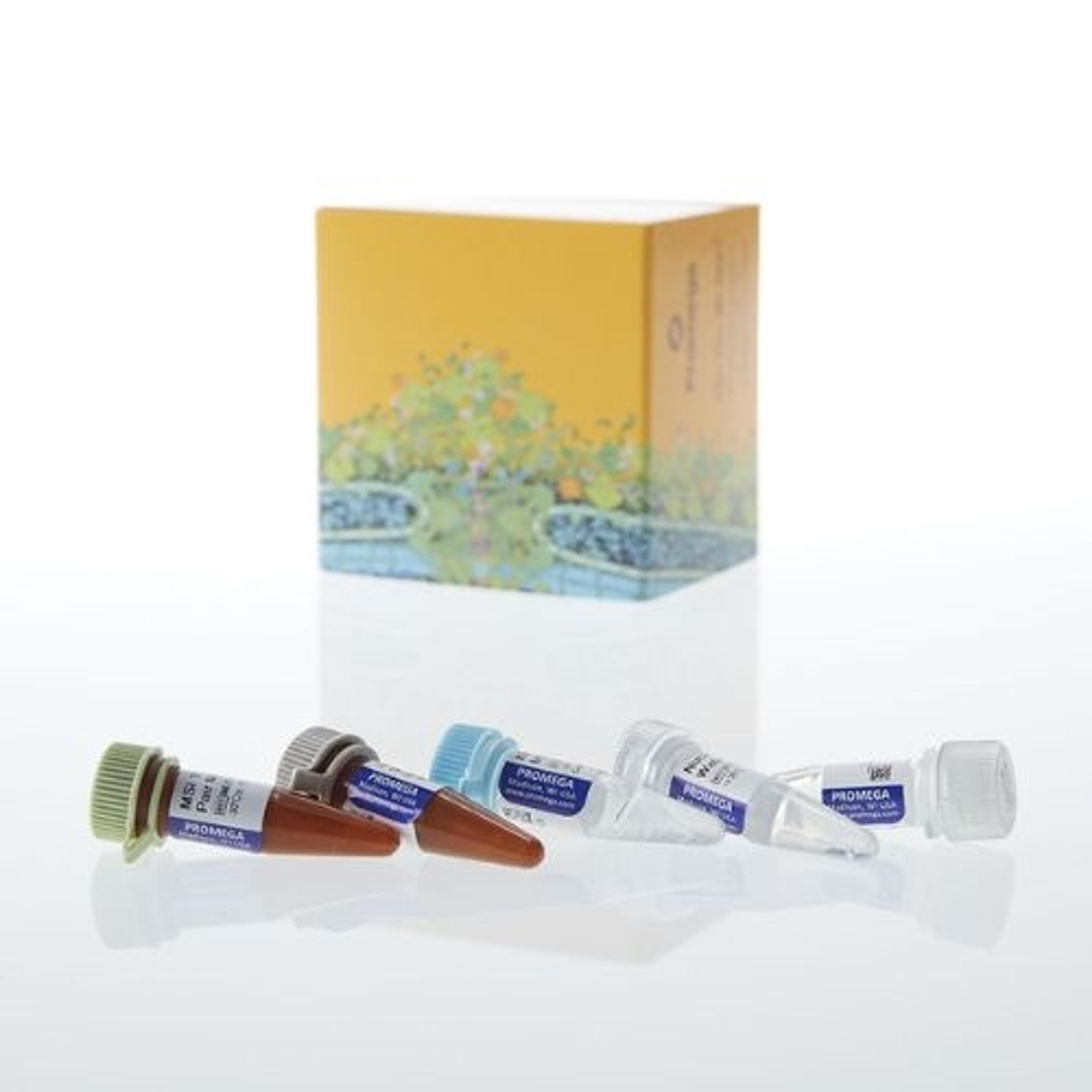Cancer researchers assess microsatellite instability through a new lens with expanded Promega system
Eight-marker panel, including new long mononucleotide repeat (LMR) markers, enables broader view of mismatch repair deficiency
22 Feb 2021
A new microsatellite instability (MSI) system launched by Promega Corporation enables cancer researchers to evaluate a new set of unique MSI markers that may offer additional precision in the characterization of their tumor samples. MSI testing measures changes in DNA sequence length that occur when cells are unable to repair mistakes in DNA replication as a result of a functional deficiency in one or more major DNA mismatch repair proteins (dMMR).
Promega LMR MSI Analysis System
The Promega LMR MSI Analysis System is a PCR-based research tool with novel markers for detecting MSI. The panel consists of eight markers, including four gold-standard markers and four novel long mononucleotide repeat (LMR) markers. Early research indicates the addition of the LMR markers may offer more clarity in assessing MSI status in challenging samples with subtle MSI phenotypes, ambiguous results or small shifts.
“Our eight-marker panel with novel LMR markers may offer a more complete view of MSI,” says Jeff Bacher, Senior Research Scientist at Promega. “This technology offers cancer researchers a broad new lens to assess the MSI status of their samples.”
Analyzing MSI
MSI analysis typically involves comparing allelic profiles of microsatellite markers generated by amplification from matched pairs of tumor and normal samples. The presence of alleles in the tumor sample that are not found in the matched normal sample indicates MSI.
The panel of markers in the new Promega LMR MSI Analysis System is comprised of four gold standard MSI markers (BAT-25, BAT-26, MONO-27, and NR-21) as well as four markers with increased repeat length (BAT-52, BAT-56, BAT-59, and BAT-60). This set of markers enables researchers to combine long markers that bring additional MSI detection alongside known and trusted markers, expanding MSI detection ability in difficult samples while maintaining overlap with data gathered using traditional markers. The assay has been optimized to enable strong and balanced amplification, even from degraded samples such as formalin-fixed, paraffin-embedded (FFPE) tissue.
MSI Technology Leader
Promega has been a leader in MSI research and technology for more than 15 years, providing MSI testing products for research use globally, and for IVD use in certain countries.
Do you use Promega products in your lab? Write a review today for your chance to win a $400 Amazon Gift Card>>

